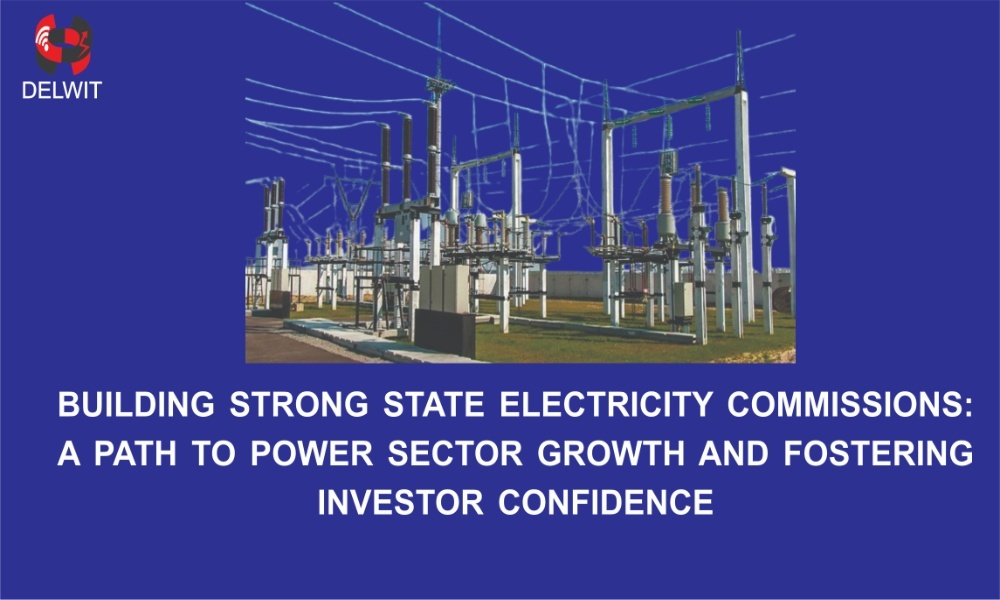Building Strong State Electricity Commissions: A Path to Power Sector Growth and Fostering Investor Confidence
The Electricity Act (2023) stands as one of the most significant reforms in Nigeria’s energy sector. Its hallmark is the devolution of authority to states to generate, transmit, and distribute power within their territories, granting them substantial control over their local electricity markets. This progressive development is expected to foster constructive competition among states, driving improved power delivery to citizens.
However, the ongoing debate over amending an Act that is less than two years old raises important questions. It is my considered opinion that the law should be allowed to take root, build investor confidence particularly for those seeking to invest at the state level and fulfil its primary purpose of expanding and strengthening the sector.
To date, 13 states have secured regulatory autonomy from the Nigerian Electricity Regulatory Commission (NERC), assuming full responsibility for their electricity markets. This is not merely symbolic it entails a serious commitment to enhancing supply reliability, improving market performance, and attracting investment. To achieve these goals, the following key points should guide the establishment and operation of State Electricity Regulatory Commissions (SERCs):
- Leadership Selection
- Appoint experienced professionals with a proven track record in the electricity market, either locally or internationally.
- While the Chairman of the commission need not be an electrical engineer, they must possess deep knowledge of the electricity market and substantial industry experience.
- Governors should treat these appointments as highly strategic and not political, as leadership competence will directly influence sector credibility and stability.
- Opponents, particularly those benefiting from inefficiencies in the power sector, often attempt to undermine, discredit, or derail the commission’s firm decisions by questioning the competence or industry experience of its leadership. Appointing highly respected and well qualified individuals, provides a strong defense against such tactics and strengthens the commission’s credibility and authority.
- Stakeholder Engagement
- Existing DisCos via their SubCo are likely to resist certain policies of the commission. To mitigate this, the commission should hold regular public hearings and stakeholder consultations, creating an inclusive platform for dialogue that promotes transparency, builds trust, and ensures that all market participants are meaningfully engaged in the policy making process.
- Compliance with Legal Framework
- The principles and guidelines of the State Electricity Law must be adhered to in full, as aggrieved stakeholders may exploit specific provisions to challenge the commission’s actions. It is therefore recommended that comprehensive training and seminars be organized for newly appointed commission members to ensure a thorough understanding of both the State Electricity Law and the Electricity Act.
- Metering Policy Enforcement
- Prioritize and enforce metering for all new customers, and establish clear, enforceable timelines and guidelines for metering existing customers to ensure transparency and build trust between consumers and DisCos.
- Coordination with State Ministry of Energy
- Clearly define roles to avoid jurisdictional conflicts between the commission and the ministry, particularly in areas not explicitly addressed in the state law or areas where the state law is ambiguous.
- Investment Attraction Beyond DisCos
- Learn from the incident of the pioneering states such as Enugu to attract credible investors in the generation and distribution sectors, thereby reducing over reliance on existing DisCos.
- State Owned Transmission and Distribution Infrastructure
- State owned transmission and distribution infrastructure is vital for the expansion of the electricity market. This is an area where state electricity agencies or parastatals can begin development as they prepare to welcome new investors. While some key stakeholders’ express concerns that state ownership may increase risks of corruption, it is my view that government owned transmission and distribution lines offer a more efficient and regulated platform for licensed generation companies (GenCos) to access, paying for usage accordingly. As more investors come in, the government can then decide to relax. This approach helps prevent uncoordinated construction of multiple transmission and distribution lines, which could undermine the aesthetics and environmental appeal of the state. Although some state laws permit licensed entities to use existing infrastructure, the intense competition will often results in resistance from incumbent DisCos, who may raise technical objections, such as inadequate current carrying capacity of the conductors to limit access.
- Right-of-Way (RoW) Management
- Prior to the enactment of the Electricity Act, most DisCos in the states invested little in expanding distribution or transmission infrastructure, relying primarily on existing facilities acquired in 2013. However, given current realities, many have begun to construct transmission and distribution lines indiscriminately. Their objective is clear: to secure full access for their future SubCos along existing corridors. Consequently, the issue of right-of-way must be carefully addressed in collaboration with the state ministries of environment and physical planning. While power infrastructure is essential for economic and social development, it is equally important to prevent the states from being visually marred by haphazardly installed cables.
- Inter-State Collaboration
- Establish a quarterly forum for all state commission chairpersons to share best practices, address challenges, and harmonize growth strategies.
- Accessible Complaint Resolution Mechanisms
- Set up consumer and operator complaint resolution offices in all local government areas, similar to NERC’s forum offices, to resolve disputes promptly and build confidence across the electricity value chain.
The Nigerian energy sector is vast and diverse. With consistent implementation of the Electricity Act across all states, the sector is poised for significant growth and sustainability in the years ahead.
Okoka Darlington+234-803-9233-787
[email protected]

Leave a Reply